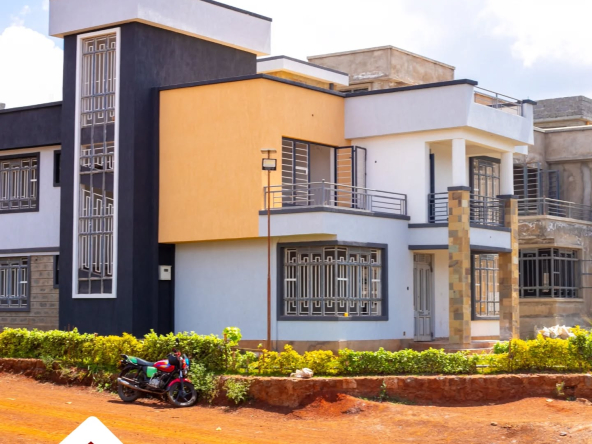Rent vs Own in Nairobi isn’t just a financial choice — it’s a stress test on your lifestyle, resilience, and future security. With mortgage rates hovering around 15–17%, rents escalating in hotspots like Kilimani and Ruaka, and inflation pushing up everyday costs, the decision goes far beyond a monthly payment. The real question is: under stress, which option actually holds up?.
1. The Starting Point: Costs Today
Typical scenarios (2025 Q1 averages):
| Location | 2BR Rent (per month) | 2BR Purchase Price (mortgageable unit) | Service Charge (avg) |
|---|---|---|---|
| Kilimani / Kileleshwa | KSh 65,000 – 85,000 | KSh 13M – 18M | 8,000 – 12,000 |
| Ruaka / Kiambu Rd | KSh 35,000 – 50,000 | KSh 7M – 10M | 4,000 – 7,000 |
| Syokimau / Kitengela | KSh 25,000 – 35,000 | KSh 5M – 8M | 2,500 – 5,000 |
Mortgage assumptions (2025):
- Average lending rate: 15% – 17% (CBK rate + bank spread).
- Tenor: up to 20 years.
- Minimum deposit: 10–20%.
💡 Quick check: A KSh 10M mortgage at 15% for 20 years → ~KSh 130,000/month repayment (before insurance/service charges). That’s often 3x the equivalent rent.
Read Also: Say Goodbye to Rent Forever — Secure Your Legacy with Willstone Homes
2. Stress Factor 1: Interest Rates
Mortgage repayments in Kenya are rate-sensitive because most loans are variable rate, not fixed.
| Mortgage Size | At 13% p.a. | At 15% p.a. | At 17% p.a. |
|---|---|---|---|
| KSh 6M | ~KSh 77,000 | ~KSh 86,000 | ~KSh 95,000 |
| KSh 10M | ~KSh 128,000 | ~KSh 143,000 | ~KSh 158,000 |
- A 2% rate jump = ~KSh 15,000 extra per month on a KSh 10M loan.
- Many buyers underestimate this volatility; renters are shielded in the short term (though landlords may adjust slowly).
3. Stress Factor 2: Inflation
Kenya’s 2023–2024 inflation averaged 6–7% (spikes up to 9% in food/transport).
- Renters: Leases adjust 1–2 years; typical escalation 5–10% annually in Nairobi.
- Owners: Food, service charges, and materials rise. Renovations & maintenance get more expensive (cement prices have risen 20%+ since 2021).
👉 Ownership doesn’t shield from inflation fully. It swaps rent escalation for rising service charges + maintenance + insurance.
4. Stress Factor 3: Maintenance & Surprise Costs
- Service charge (apartments): KSh 3,000 – 12,000 monthly depending on estate amenities.
- Standalone homes (Kitengela, Ruiru, Ngong):
- Borehole repairs: KSh 80K–200K hit.
- Roof replacement (iron sheets/tiles): KSh 500K–1M.
- Security (electric fence, guards): ongoing KSh 15K–30K/month in some gated communities.
Renters externalize this — a burst water pump is the landlord’s headache. Owners carry the liability.
Read Also: Construction Mortgage Kenya: What It Is, How It Works, and How to Apply
5. Soft Costs (Often Ignored)
| Factor | Renting | Owning |
|---|---|---|
| Flexibility | Can relocate for job, school, lifestyle in 1–3 months. | Locked unless you sell/lease. Resale can take 6–24 months. |
| Time cost | Minimal admin beyond lease signing. | Continuous: service charge meetings, repairs, bank paperwork, valuation updates. |
| Risk exposure | Limited: max loss = deposit + moving costs. | High: market downturn (flat values in Kilimani since ~2015), forced sale, rate hikes. |
| Wealth building | None directly (except investing savings elsewhere). | Equity growth (if property appreciates). Hedge vs. future rent hikes. |
6. So, Under Stress, Who Wins?
- Renters “win” in high-rate, high-inflation, high-maintenance years. Their fixed rent (short term) and lack of capital exposure makes them nimble.
- Owners “win” only if they can absorb shocks and hold long term. Nairobi’s appreciation is uneven:
- Kilimani: Prices stagnant, even falling in some blocks.
- Syokimau / Kitengela: Moderate growth 4–6% p.a., driven by demand for affordable space.
- Ruaka / Kiambu Rd: Still appreciating 6–8% p.a. (infrastructure + young professionals).
7. Rule of Thumb
- If your monthly mortgage + service charge > 2x equivalent rent, renting is financially safer unless you have long-term stability + excess income.
- Ownership makes sense if:
- You plan to stay put 7+ years.
- You’ve got a buffer fund (6–12 months repayments).
- You’re buying in an area with real demand drivers (infrastructure, schools, employment hubs).
At the end of the day, Rent vs Own in Nairobi is less about chasing the cheapest monthly bill and more about matching the choice to your stability, risk tolerance, and long-term vision. For some, renting keeps flexibility and shields against shocks. For others, ownership offers the security of a fixed home base and protection from rent inflation. The smart move is not asking “which is cheaper today?” but “which will keep me safer, saner, and more secure five to ten years from now?”





